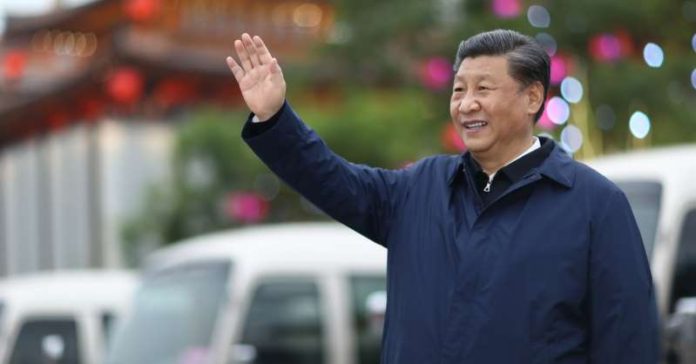The election was one more of many signs (see my column of May 2nd) that China sees the current global situation, accelerated by COVID-19’s outsized blow to the United States, as a unique moment to gain global influence at Washington’s expense. Kiribati helps that effort in two respects: narrowing the number of countries in the world recognizing Taiwan to just 15 and expanding its presence in waters dominated by U.S. Pacific Command.
And that brings me to the stale debate in Washington over whether President Xi Jinping, the most dominant Chinese leader since Mao Tse Tung, wants President Donald Trump or former Vice President Joe Biden to win November’s presidential elections. And might tilt everything from trade decisions to intelligence operations to extract his preferred outcome.
Xi’s power preference
The reality is that President Xi has already decided who he prefers to be the victor in our 2020 elections – and that would be China.
We’re in the systemic struggle of our age, and the U.S. democratic system is facing one of the great stress tests of its history without any certainty about the outcome. The situation is bound to get messier through the elections and, perhaps, far beyond.
The United States won its global role on the attractiveness of its values and the effectiveness of its institutions, charms that were tarnished even before the country’s worst-in-class performance in the face of coronavirus. Deaths this week in the U.S. hit a world record 124,468, and new covid-19 cases passed the 40,000 mark for the first time, leaving allies around the world bewildered about their favorite superpower.
Chinese leaders are telling their global partners this confirms further that the United States is a declining leader with a faltering model. Beijing underscores the value of their brand of leadership, which focuses more on being at the center of global influence that on being atop the heap.
Over time, the United States may well self-correct, as it has done so often in history. It’s also true that China continues to hurt its global cause through overreach, unfair trade practices and diplomatic bullying.
This week also produced new signs that Europe has grown warier of the Chinese embrace. “We continue to have an unbalanced trade and investment relationship,” said Ursula von der Leyen, European Commission president, after a summit with Chinese leaders. She pressed Beijing to deliver on last year’s commitments on market access and to close negotiations on an investment agreement.
At the same time, U.S. Secretary of State Mike Pompeo surprised on Thursday his European partners by accepting their proposal, which he had seemed cool on earlier, to launch a new U.S.-EU dialogue on China. Josep Borrell, the EU’s de facto foreign minister, raised the idea earlier in the week but soft-pedaled it when it initially seemed the U.S. lacked interest.
The U.S. also recently stepped up military reassurance efforts on behalf of its Asian allies. This month, three U.S. carriers navigated the Philippine Sea and farther east, bringing with them a flock of fighter jets. Congress is working on a Pacific Deterrence Initiative, a special budget that would spend nearly $7 billion over two years aimed, among other outcomes, at bolstering naval forces in the Western Pacific.
Seizing opportunities
Even with all that activity, China remains even busier, seizing opportunities wherever it senses a global leadership vacuum worth filling. In the face of COVID-19, it has demonstrated a remarkable ability to multi-task. The evidence of that would fill volumes, but here are some fronts worth watching.
Beijing is accelerating its work toward creating a digital currency, planning for the moment that it may be able to shift its creditors to repayment in yuan. Over time, it would hope to curb the power of the dollar in global transactions and to sanction and print money.
Kristine Lee in Politico Magazine reports on how, with the Trump administration’s reduced interest in multilateral institutions, “Beijing has systematically positioned Chinese nationals at the head of a wide range of U.N. agencies.” That reflects “Beijing’s savvy diplomatic maneuvering as a rising power, and its position as the world’s second largest-economy,” she writes.
China also continues to expand its military capabilities in its region, defining 80 new geographic features in the South China Sea as its own, some 55 submerged features, and moving toward the declaration of an Air Defense Identification Zone to tighten its air domain.
Perhaps most crucial to watch is Taiwan. Chinese rhetoric is growing more aggressive, and its military activity in Taiwan’s air defense space is growing more frequent. Beijing has sailed a new aircraft carrier through the Taiwan Strait, and it launched new destroyers last year.
Chinese military leaders have said they’d like to make Taiwan their own by the time of the Chinese Communist Party’s 100th anniversary in July of next year.
It will take a far more focused and consistent Washington, acting with greater cohesion alongside its global allies, to deter any such birthday aspirations.
Frederick Kempe is a best-selling author, prize-winning journalist and president & CEO of the Atlantic Council, one of the United States’





